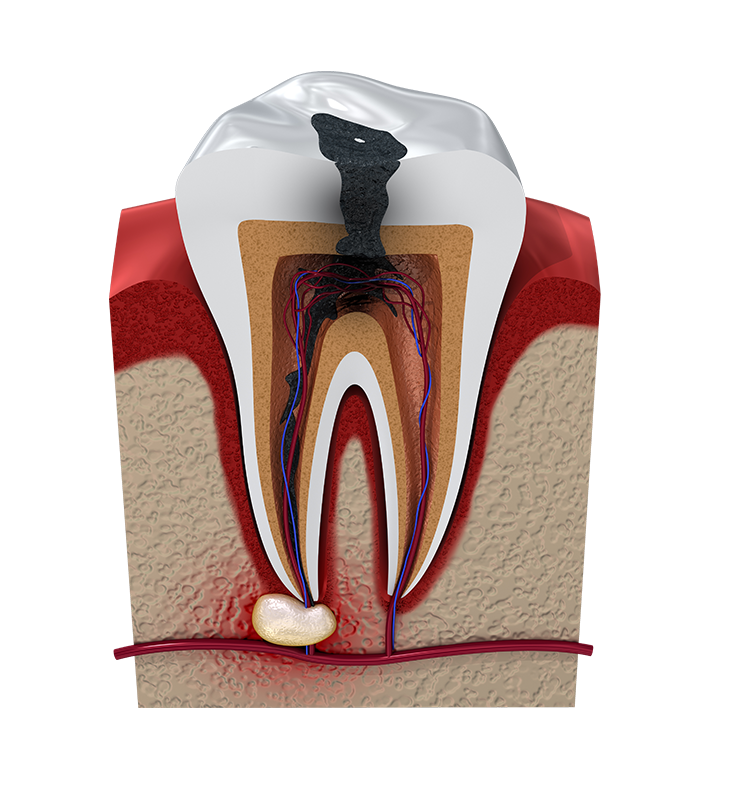What is a Root Infection?

It is an infection in the inner core of the tooth that involves the root portion of the tooth, which may show up as an infection in the gum called an abscess.
A root infection is an infection that occurs in the root of a tooth, typically as a result of decay, gum disease, or injury. This type of infection can cause significant pain and discomfort, and if left untreated, can lead to tooth loss.
What Are The Causes of a Root Infection?
Causes include many different factors. It can be caused by anything that damages the delicate nerve inside of the tooth, such as trauma from an accident or biting something that is hard. If a tooth has a large decay or chip/crack that goes undetected, it will allow bacteria to enter and spread throughout the tooth and down into the root of the tooth.
What Are The Signs And Symptoms of a Root Infection?
If you have a root infection, you may have pain and discomfort near the tooth. It may also be sensitive to hot and cold foods/drinks. You may also experience swelling around the tooth along with bad breath.
How is a Root Infection Diagnosed?
A root infection is typically diagnosed through a dental examination, which may also include a dental history review to understand your symptoms, medical history and previous dental work.
X-Rays may also be done to help examine the affected area and to determine the severity of the infection and the impacted surrounding tissues.
What Are Possible Treatments For A Root Infection?
If you have a root infection, you will need to have a root canal. During a root canal treatment, the doctor will clean out the canals of the tooth to get rid of the infection. You may be prescribed an antibiotic to help rid the infection.
The dentist will remove the damaged root and tissues, clean and shape the inside of the tooth. A crown (a type of dental cap) is usually placed over the treated tooth to protect and restore it to its normal function and appearance. The goal of a root canal is to save a damaged or infected tooth, rather than extract it, and to prevent further spread of the infection.
Overall, a root canal can help relieve pain, improve oral health, and preserve the natural tooth for a long time.
Are There Preventative Steps or Measures To Avoid a Root Infection?
Biannual cleaning and checkups will help to prevent you from needing a root canal. If you do have any dental work that needs to be done, it is best to have it done as soon as you can.
Practicing good oral hygiene and staying away from sugary and acidic foods will also help prevent root infections.
Prompt treatment of any dental problems is essential to avoiding the need for a root canal. If you experience tooth pain, sensitivity, or swelling, it’s important to seek dental treatment right away to prevent further damage.
What Are The Risks If a Root Infection Is Left Untreated?
If a root infection is left untreated, you will experience pain and discomfort from the tooth. If the tooth is not treated and the infection is severe, it may need to be extracted.
Recommended Next Steps for a Root Infection
After a root canal treatment, a crown may be placed on the tooth to help stabilize the tooth.
If you are experiencing any symptoms associated with a root infection – it’s important to schedule an exam with your dentist to get the proper care.
